- cinéma
- Histoire de l'Espagne
- Franquisme
- Luttes politiques
Classes de Lutte #1 / Activist Spanish Cinema under Franco
Screening Saturday 20th May 2017, 7:00 pm
Spagna ’68 (1968) by Helena Lumbreras
El campo para el hombre (1972-1975) by Helena Lumbreras and Mariano Lisa
The screening of the two films will be followed by a discussion with philosopher and activist Mariano Lisa
Context: these films were made in Franco's Spain.
Internationally the 1960s and 1970s were years of latent conflict, notably in the form of the Cold War between the Eastern and Western blocs. At the time Spain was still under Franco's thumb, with the "enemies of the regime" under threat of arbitrary arrest and imprisonment, and even assassination. The artistic scene was marked by frequent use of a military vocabulary, with the term "vanguard" hijacked by the government as a label for a movement made up of victors; artists and filmmakers fell in with the dominant line, even if some of them managed to make subversive play with it.
During the period of transition following Franco's death in 1975, the dismantling of the workers' and people's movement was the price Spanish society had to pay for its new government and institutions to be given the seal of approval by the dominant capitalist countries. This meant the forced deactivation of popular militancy and the deindustrialisation of Spain. Given their reputation as politically committed filmmakers, Helena Lumbreras and Mariano Lisa were blackballed both at institutional level and within the industry. Moreover Spanish men – including those who had opposed Franco – scorned not only feminism, but also all forms of female participation in society. Lumbreras suffered considerably because of this situation, which prevented her from pursuing her cinema and television work.
Admission free, advance booking required:
reservation@leslaboratoires.org or 01 53 56 15 90
_______________________
Helena Lumbreras (Cuenca, 1935 - Barcelone 1995) was a Spanish film director, screenwriter and camera operator. She spent much of her life teaching school in Madrid's working-class neighbourhoods. A grant enabled her to study cinema at the Centro Sperimentale di Cinematografia at Cinecittà, in Rome, and from 1964 to 1970 she worked as assistant director with Nanni Loy, Federico Fellini, Francesco Rossi, Renato Castellani and Gillo Pontecorvo. While she was learning her craft in Italy she encountered for the first time all the enthusiasm of workers' struggles and the existence of political parties and mass organisations with deep roots in society. On her return to Spain she became a leading member of the activist cinema collective Colectivo Cine de Clase. In May 1968 she clandestinely made Spagna '68, entirely financed by Pier Paolo Pasolini; the first film in history to be made under and in opposition to a totalitarian regime.
Mariano Lisa, philosopher and activist, met Helena Lumbreras in Barcelona in 1970 during protests against the "Burgos Trial", at which six of sixteen accused Basque nationalists were summarily condemned to death. Both teachers at the time, Lumbreras and Lisa organised Franco Spain's first-ever teachers' strike; as a reprisal they were arrested on Monday 2 August 1971 by armed members of the political police, and subsequently tortured and imprisoned. From 1973 they made a number of films together, among them El campo para el hombre (July 1973–November 1975), O todos o ninguno in 1976 and A la vuelta del grito in 1977. Their life together was shot through with political commitments that led them to develop an alternative, activist cinema financed by their teaching jobs.
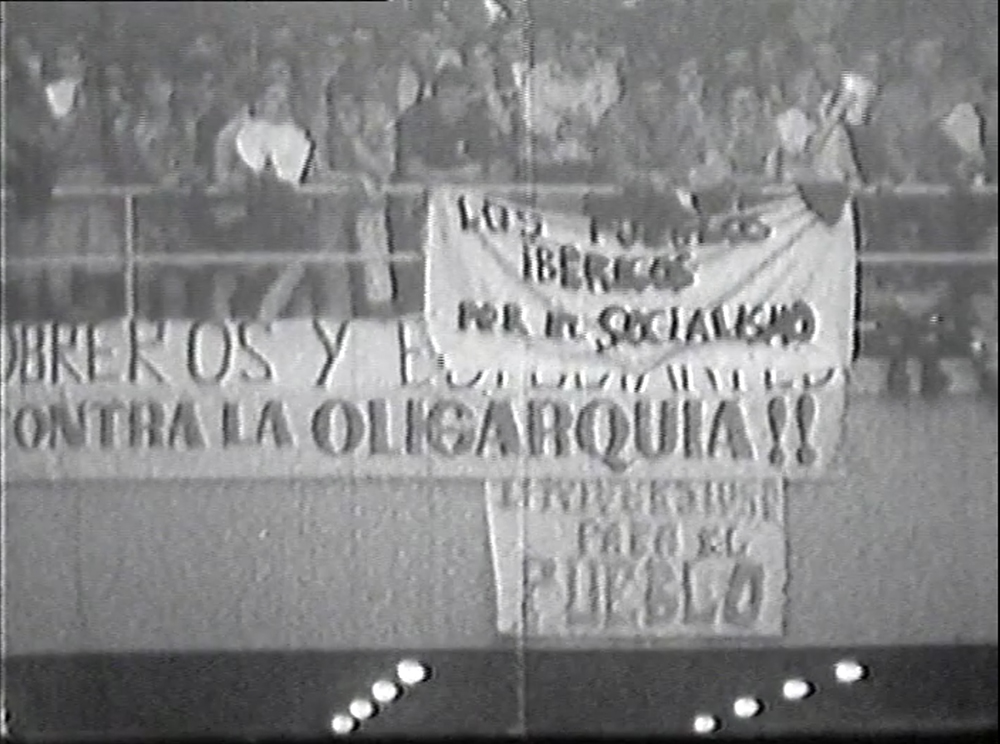
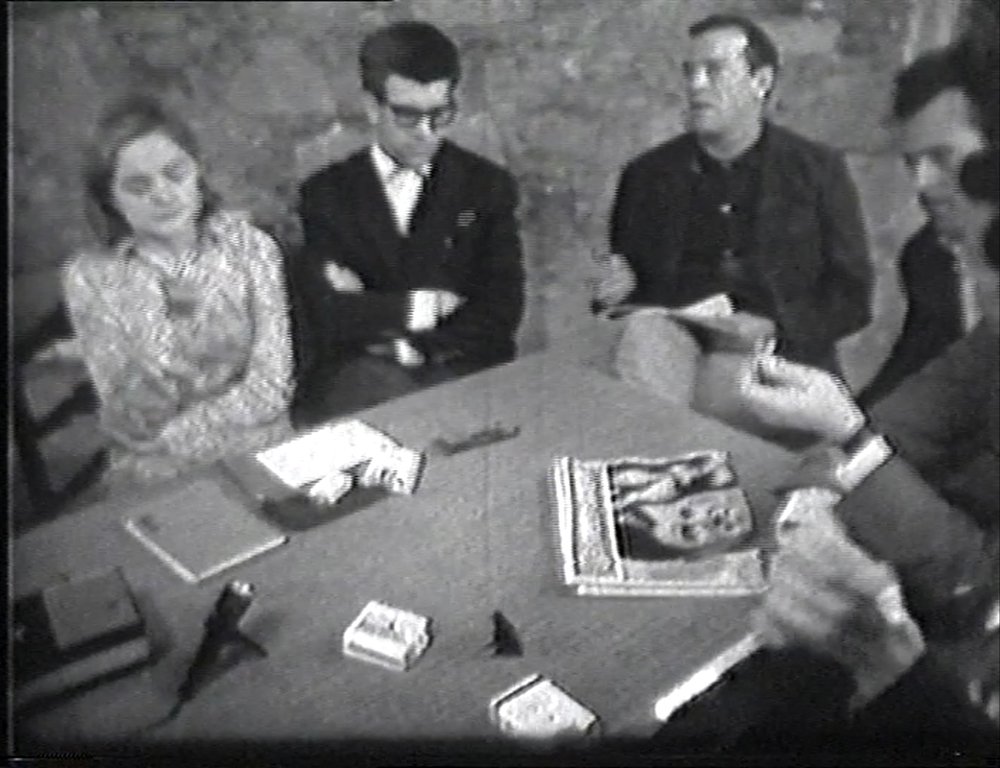
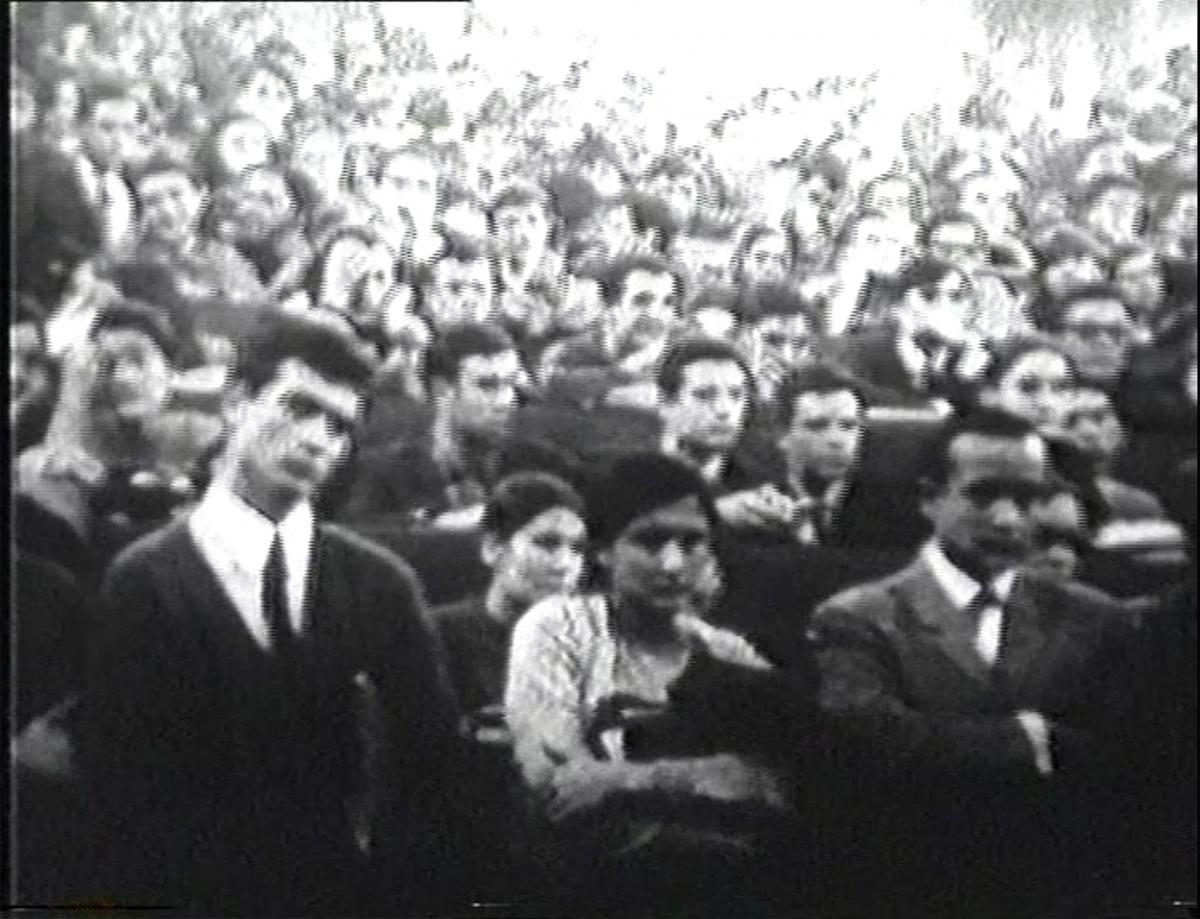
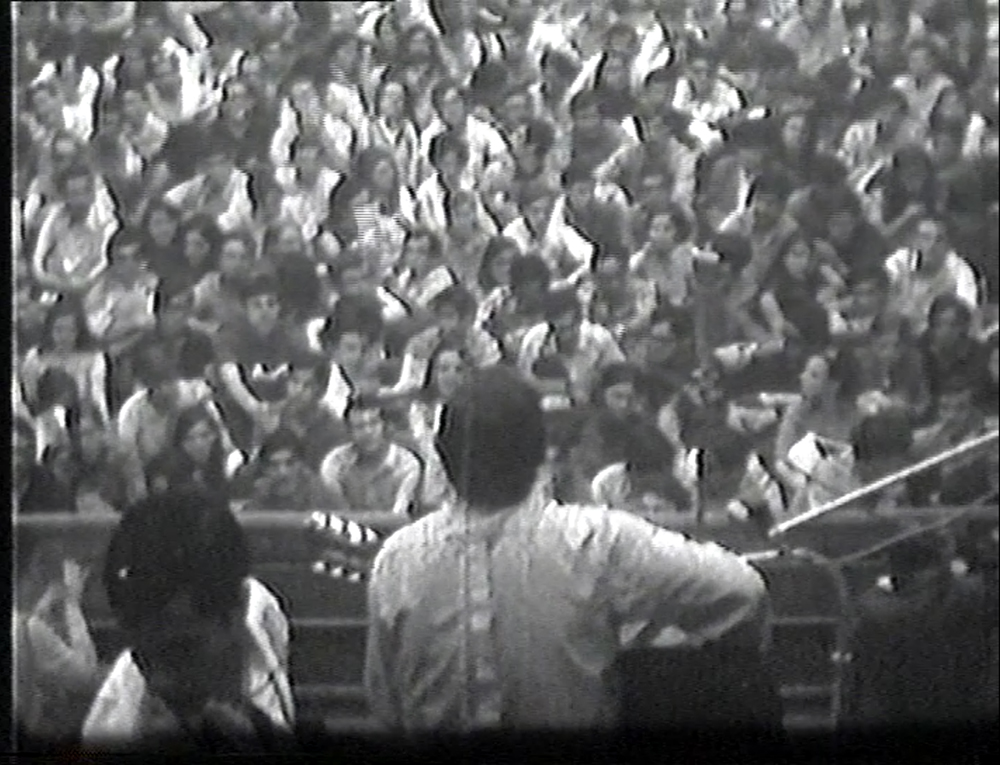
Spagna ’68 (1968) by Helena Lumbreras _ all rights reserved
Direction, scénario et montage : Helena Lumbreras.
Photographie : Helena Lumbreras et Lorenzo Soler (dans des séquences de Barcelone).
Format: 16 mm, noir et blanc, 35 minutes.
Production: Unitelefilm (Roma).
Images de la guerre civile espagnole à l'Université Ville de Madrid en 1938: le front qui arrête l'avancée des forces fascistes de Franco. Mai 1968. Une affiche à l'Université de Madrid: « Bienvenue dans la première Université Libre d’Espagne ». Concert de Raimon (Ramón Pelegero Sanchis). Assemblée étudiante. Importante manifestation à la sortie de l’Assemblée. Chars et cars de la police. Travailleurs et ouvriers avançant ensemble. Les dirigeants des Universités de Madrid et de Barcelone traitant du mouvement étudiant. Enrique Tierno Galván analysant le moment espagnol et prédisant un avenir socialiste pour l'Espagne. Bidonville dans la capitale Espagnole. Qui, comment et à travers quels canaux s’articule la lutte ? Mouvement ouvrier, mouvement étudiant, prisonniers politiques, clergé progressiste. Barcelone: réunion clandestine des ouvriers en sous-sol d'une église dans la périphérie. Travail à la pièce dans les usines, la construction, à l'intérieur des casernes-logement.
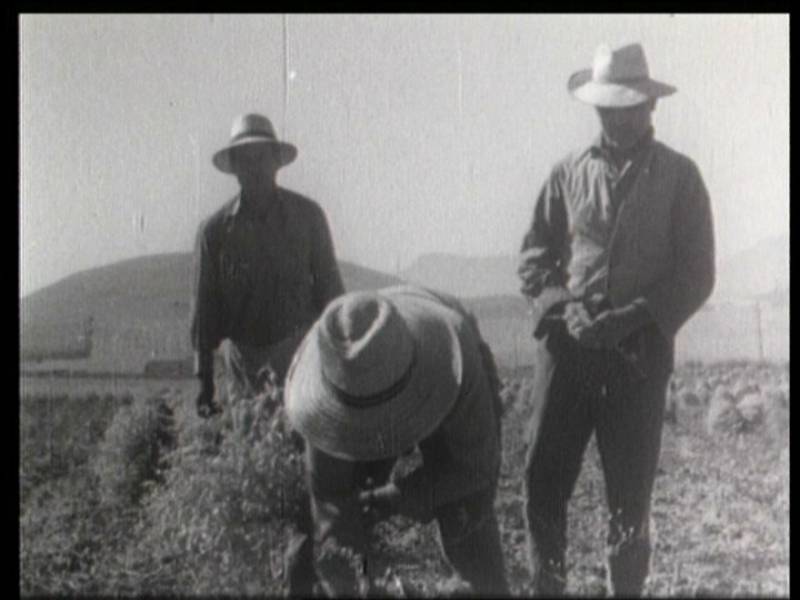
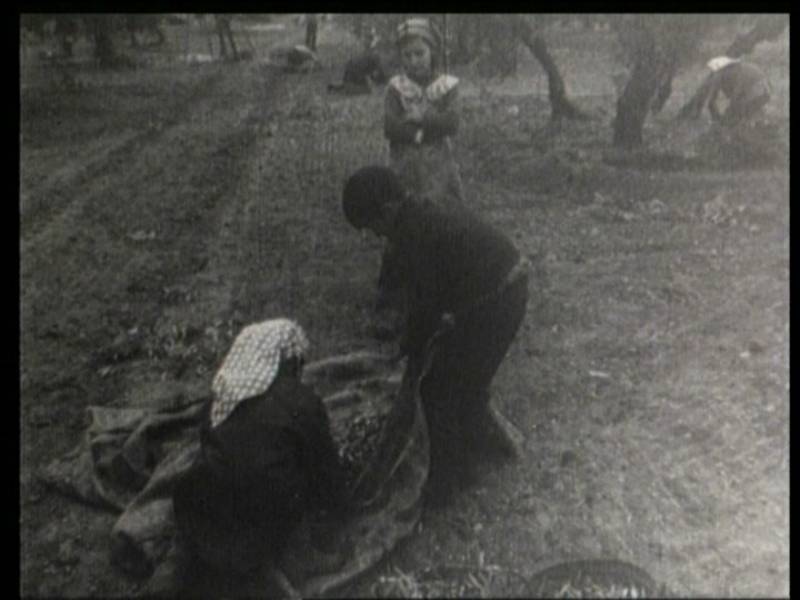
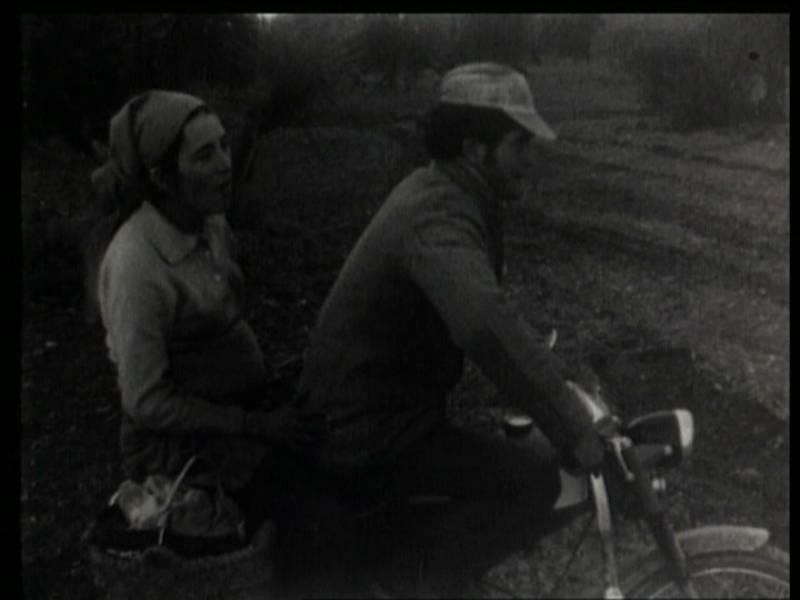
El campo para el hombre (1972-1975) by Helena Lumbreras et Mariano Lisa
tous droits réservés
Réalisation, scénario du film et de l'édition: Lisa Helena Lumbreras et Maro.
Musique: Josep Cercós, Quico Peña (romance) et Julia León (chanson).
Format: 16 mm, noir et blanc, 60 minutes.
Production: Helena Lumbreras et Maro Lisa.
Une fable. Enfants allant à l'école dans les villages de Galice et d'Andalousie. La leçon d’un professeur à l'école nationale franco-catholique. Un ancien élève lance un encrier sur la carte de l'Espagne. La Romance aveugle chante l'histoire illustrée de la paysannerie ibérique du Moyen Age à la guerre civile espagnole. Pascual Carrión responsable technique de la Loi sur la Réforme Agraire de la Deuxième République explique l'histoire contemporaine. Petite exploitation Galicienne. Xosé Manuel Beiras décrit et interprète la situation des petits agriculteurs en Galice. Scènes paysannes et de vie rurale en Galice. Immigrés entassés comme des moutons dans un train. Champs de blé de la Mancha. Moisson et battage dans le sud de la Castille. Grands domaines andalous : ouvriers journaliers, paysans sans terre. Migration saisonnière dans les fermes. Le travail dans les champs: coton, pois chiches, vendange, ramassage des olives. Jeunes journaliers qui parlent. Les agriculteurs réfléchissent à leur situation actuelle et rêve d'une autre vie dans le champ, etc.

